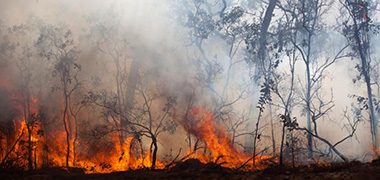
This role has a high level of AI exposure. While some human skills are required, many tasks could be automated or replaced by new technology.
Explore all careersA Climatologist studies climate changes, forecasts issues, and advises authorities, needing strong analytical and communication skills.
Get qualified to work as a Climatologist with a course recognised across Australia. Speak to a training provider to learn more.
Browse occupations related to Climatologist
In Australia, a full time Climatologist generally earns $1,550 per week ($80,600 annual salary) before tax. This is a median figure for full-time employees and should be considered a guide only. As you gain more experience you can expect a potentially higher salary than people who are new to the industry.
 Courses.com.au Team
Courses.com.au Team
This sector has seen strong employment growth over the last five years. There are currently 13,700 people working in this field in Australia and many of them specialise as a Climatologist. Climatologists may find work across all regions of Australia, particularly in larger towns and cities.
Source: Australian Government Labour Market Insights
 Courses.com.au Team
Courses.com.au Team
If you’re planning a career as a Climatologist, consider enrolling in a Master of Science (Applied Climate Science). This course will develop your knowledge of climate variability and explore strategies for managing changes to climate. You’ll also look at how climate change impacts on natural systems and human activities.
 Courses.com.au Team
Courses.com.au Team



A Climatologist studies changes in our climate and weather conditions over time. You might conduct research into climatic issues and prepare reports on your findings. Climatologists make forecasts about future climate issues and provide advice or recommendations to a range of authorities. You may specialise in a particular climate issue or study general climate conditions.
Climatologists should be passionate about their area of science and enjoy sharing their knowledge with others. You’ll need to have strong analytical skills and be able to communicate research findings with a range of stakeholders. Climatologists must be able to work independently, but also function as part of a team.